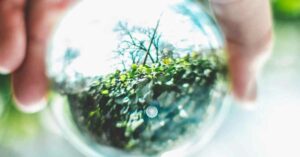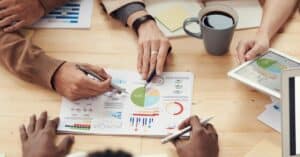Warnings that we must change our ways in order to be more sustainable and reduce our carbon footprint are becoming increasingly urgent.
Key Points:
- Despite warnings, it is still taking time for every business to accept how it shares responsibility with the rest of the world to make real and lasting environmental changes to its activities.
- A modern, forward-thinking business needs to think sustainably. Any business plan must include policies to help reduce carbon emitted by activities such as production and transport.
- SDGs, or sustainable development goals, have been introduced by UN states so that individual businesses can have a real impact on and the wider world.
It can of course be a daunting task to look at your business and try to figure out how you can remodel your processes and use of resources to help become more sustainable and environmentally friendly. That is a lofty ambition which at first seems like it should only apply to huge global corporations.
But a roadmap to sustainability already exists – with a wealth of information and guidance, in the form of SDGs (sustainable development goals), available to a business of any size.
What are the Sustainable Development Goals (SDGs)?
Back in 2015, all United Nations Member States adopted the 2030 Agenda for Sustainable Development. At its heart is an urgent call for action in the form of 17 Sustainable Development Goals (SDGs), which are:
- No poverty
- Zero hunger
- Good health and well-being
- Quality education
- Gender equality
- Clean water and sanitation
- Affordable and clean energy
- Decent work and economic growth
- Industry, innovation and infrastructure
- Reduced inequalities
- Sustainable cities and communities
- Responsible consumption and production
- Climate action
- Life below water
- Life on land
- Peace, justice and strong institutions
- Partnerships for the goals
If you have already accepted your business’s need for change and are developing a set of actions, it can still be challenging to see how these fit into the list of SDGs above.
However, taking these goals into account and applying them to your business’s own sustainability strategy can help to focus your objectives under a holistic framework.
How can I relate these 17 SDGs to my business strategy?
A truly modern, forward-thinking business needs to think sustainably. Any business strategy must include policies to neutralise carbon emitted by activities such as production and transport.
There are various reasons that businesses need to focus their attention on sustainability, such as the UK government’s net zero target and accompanying environmental legislation. It is also becoming increasingly important when it comes to consumer choices, so greater sustainability can make your business more competitive.
Health Safety Environment Officer, Ian Price, recently took an IEMA course to align Invacare’s sustainable strategy with the 17 SDGs . Here, he describes the benefits he has been able to deliver to his organisation:
Where do we start with becoming more sustainable?
Reviewing your business’s processes, gathering information and winning stakeholder buy-in are strong starting points when building sustainability initiatives as part of your business plan.
Your sustainability strategy needs to be specific to your business in order to achieve meaningful results, reduce environmental harm and even begin to have a positive impact on the planet.
Perhaps not every one of the SDGs will be relevant to your business’s goals. But they will help guide and focus you. In addition, other businesses may have advice and share their experience of addressing these 17 themes.
Can we maintain a successful business, whilst being sustainable?
Ultimately, a business’s main goal is success in generating profit. Aligning your plans with the global sustainability agenda is not solely for the good of the planet – it can be good for business too.
Addressing waste of resources, harmful emissions and methods of production and transport can help to streamline a business and thus make it more efficient. From this comes higher productivity and profit.
Preparing your business to not only meet today’s climate change challenges but also those that may lie ahead will future-proof activities and make the business more resilient. The 17 SDGs encourage the gathering, analysis and sharing of knowledge and data to inform practices.
How do I get everybody on board?
To help arm your business to align with SDGs, TSW offers a range of IEMA environmental & sustainability courses. These can equip your employees (at various levels) with the green skills needed to build your sustainability plan in line with the 17 SDG themes, and give your business the knowledge, expertise and agility it needs to comply with changes in environmental legislation.
Training your employees in environmental skills will also encourage them to feel proud to be part of a business that is forward-thinking and responsible. This builds loyalty and a sense of working together for the good of the planet, not just for profit.
How do we know if we’re doing the right thing?
The UN has also developed a Business Report on SDG initiative to show businesses how to embed SDGs into their plans in a useful and practical way. This includes reporting on impact and how to relay information to stakeholders.
Partnership working can use the findings of other companies to inform your business’s plans on sustainability. Not everything will be a success straight away, some actions will take time to yield benefits and there may be higher costs involved at the beginning.
By sharing knowledge and working in partnership, the 17 SDGs can have a real impact on individual businesses and the wider world.
Listen to our training experts discuss how your business can become more sustainable, in our green skills podcast







